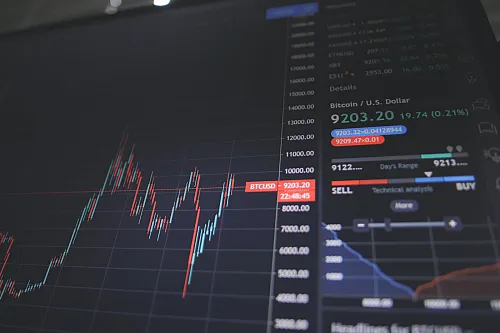Designated gatekeepers must now comply with far-reaching DMA obligations to avoid public and/or private enforcement.
Far-reaching DMA obligations of the first designated gatekeepers begin to apply.
In September 2023, the European Commission (EC) designated the first six Big Tech companies as gatekeepers (GK) under the Digital Markets Act (DMA) in respect of a total of 22 core platform services (CPS): (1)
- Alphabet: Google Shopping, Google Play, Google Maps, Google Search, YouTube, Google Android, Google Chrome, Alphabet’s online advertising services;
- Amazon: Amazon Marketplace, Amazon Advertising;
- Apple: App Store, iOS, Safari;
- ByteDance: TikTok;
- Meta: Facebook, Instagram, Meta Ads, WhatsApp, Messenger, Marketplace;
- Microsoft: Windows PC OS, LinkedIn.
These companies have been designated on the basis that they meet the quantitative thresholds set out in Article 3(2) DMA, which give rise to a presumption of 'gatekeeper' status.
The legal 6-months-deadline set for this purpose having expired, these GK must now, in respect of the CPS for which they have been designated, comply with the far-reaching obligations and prohibitions set out in Articles 5-7 DMA and listed in the annex to this legal alert. (2)
These (and other) obligations in the DMA aim to ensure contestability and fairness in digital markets, and compliance may require both contractual and technical measures, such as new interfaces and the need to modify products and services (e.g., to enable interoperability, openness, non-discrimination and ‘choice’ for both businesses and end-users).
Compliance with these obligations is in principle a matter of self-assessment by GKs; only in relation to the obligations in Articles 6 and 7 DMA can a GK request the EC to determine whether the measures implemented by it to ensure compliance are sufficient (Article 8(3) DMA).
Gatekeeper reports on compliance measures and consumer profiling techniques
Moreover, by now, the abovementioned GKs had to provide the EC with:
- a report describing the measures implemented to ensure compliance with the DMA obligations (Article 11 DMA); (3) and
- an independently audit description of consumer profiling techniques applied across the CPS concerned (Article 15 DMA). (4)
The first compliance reports and consumer profiling reports are already accessible via links on the EC’s DMA website.
EC workshops for DMA stakeholders to provide clarifications and seek feedback
The EC is now carefully analysing the compliance reports as to whether the implemented measures are effective in achieving the objectives of the relevant obligations under the DMA. This assessment will also be based on the input of interested stakeholders (e.g., business users, competitors and end users of the CPS concerned), including in the context of the compliance workshops organised by the EC between 18 and 26 March 2024 (one for each GK), where GKs are invited to present their solutions.
Public enforcement of the DMA
The EC has exclusive competence for the public enforcement of the DMA, including, e.g., the designation of GK, the adoption of non-compliance decisions and the imposition of fines and other sanctions. National competition authorities (NCAs) may assist the EC in this task. A NCA may also, on its own initiative, investigate suspected infringements of Articles 5-7 by the GK on its territory, provided that it has the competence and investigative powers to do so under national law. The opening of proceedings by the EC removes this possibility for NCAs and ends any ongoing NCA investigations.
Violations by GKs of their obligations under the DMA can result in fines of up to 10% of the company’s total worldwide annual turnover, or up to 20% in the event of repeated infringements. In certain situations, periodic penalty payments of up to 5% of the average daily turnover may be imposed. In the case of systematic breaches of DMA’s obligations, additional remedies may be imposed, which must be proportionate to the offence committed. As ultima ratio, non-financial (e.g., behavioural and structural) remedies can be imposed (e.g., the divestiture of a business).
Private enforcement of the DMA (5)
Based on general principles of EU law, according to which a provision of the DMA can be relied upon by a stakeholder in a judicial claim brought against a GK before a national court if the provision is sufficiently precise and unconditional to create rights for the stakeholder against the GK, it seems possible that at least some of the GK obligations in Article 5-7 DMA are considered to be actionable by business users, competitors and/or end users, depending on the specific obligation concerned.
Article 39 DMA also suggests that this is in principle possible, both where the EC has already adopted a non-compliance decision regarding the conduct concerned (follow‑on action) and where this has not (yet) happened (standalone action). (6)
Other provisions of the DMA also indicate the relevance of private initiative in DMA enforcement. Per Article 27(1) DMA, stakeholders, as well as their representatives, can complain to the NCA or directly to the EC about any suspected breach by the GK of any of its obligations under the DMA (both NCA and EC having discretion in their decision as to whether to investigate a case).
DMA enforcement complementary to competition law enforcement
There is no overlap between DMA and competition law enforcement. DMA rules and enforcement are complementary to (i.e., come on top of) competition law enforcement. This means that, e.g., NCAs can, in principle, investigate and impose obligations on a firm under competition law (including, e.g., for unilateral conduct), even though the firm is designated as GK under the DMA. In such a case, the NCA must inform the EC of the investigation and of the obligation(s) it intends to impose (Article 38 DMA). (7)
Public and private enforcement of DMA in Portugal
Unlike other EU Member States, Portugal has not yet adopted a specific measure to regulate the domestic enforcement of the DMA.
In terms of public enforcement, the competent NCA to assist the EC and to which complaints by third parties can be addressed is the Portuguese Competition Authority (although it is not entirely clear yet whether this includes the competence for own investigations of suspected violations of the DMA).
In terms of private enforcement, as things currently stand, the Portuguese law transposing the EU Private Damages Directive does not apply. Therefore, actions must, in principle, be brought before common civil courts and are subject to the general rules of civil law and procedure, including, for example, Article 483(1) of the Civil Code (CC) for actions for damages, Article 362(1) of the Civil Procedure Code (CPC) for injunction actions to prevent serious and potentially irreparable harm to rights conferred by the DMA and Articles 575 CC, 429 and 1045 CPC for document disclosure requests.
In contrast to individual claims that may generally be lodged by third parties, representative (class) actions and other collective redress mechanisms are only available to end users under Portuguese law.
_________________________________
(1) Some of these firms have lodged actions for annulment of their designation as gatekeeper in respect of some of the core platform services concerned (Apple: iOS, App Store; ByteDance: TikTok; Meta: Messenger, Marketplace). These appeals are still pending and do not suspend the effects of the contested designations. Designations made are subject to review – i.e., can be reconsidered, amended or repealed – by the EC under certain conditions, and other tech firms may be designated as GK (and firms already designated as GK may be designated for other CPS) if they meet the criteria defined in the DMA (e.g., the EC has reportedly received notifications from Booking, ByteDance, and X concerning – in the case of ByteDance: other – CPS meeting the DMA thresholds).
(2) Two other obligations have been effective as from the moment of designation: (i) to put in place a compliance function (Article 28 DMA) and (ii) to report on intended concentrations within the meaning of the EU Merger Regulation (even if not meeting the relevant thresholds) (Article 14 DMA).
(3) The EC has published a template for the compliance report. GKs must update the report at least annually. Non-confidential summaries of reports and updates submitted by GKs will be made available on the EC website.
(4) The EC has published a template for the reporting on this topic. GKs must make publicly available a non‑confidential summary of that description and update the report and the non-confidential summary at least annually.
(5) See also our legal alert dated 3 May 2023.
(6) National courts must not issue rulings which run counter to decisions adopted by the EC under the DMA and must avoid issuing rulings which would conflict with a decision contemplated by the EC in proceedings initiated under the DMA (Article 39(5) DMA).
(7) NCAs must not adopt decisions running counter to decisions adopted by the EC under the DMA (Article 1(7) DMA).
See the annex to the Legal Alert here.



